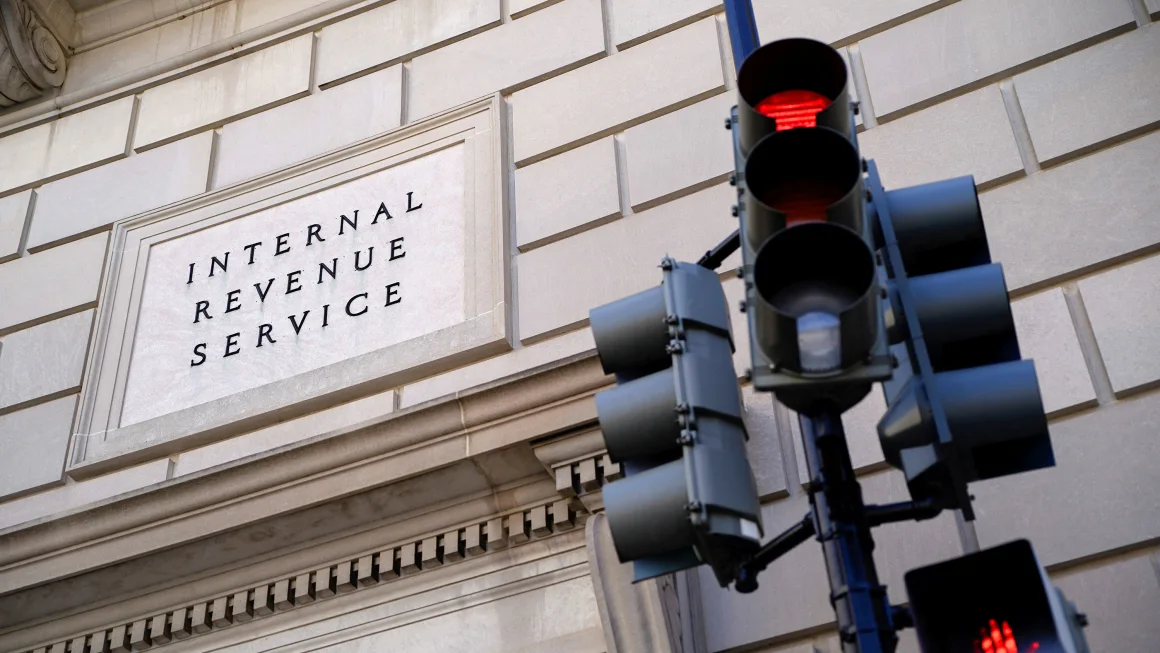On Friday, President Trump reaffirmed his intention to strip Harvard University of its tax-exempt status, further demonstrating his intention to utilize the Internal Revenue Service (IRS) to target those he views as his adversaries.
Although there have been instances where universities have been denied or failed to attain tax-exempt status, it has never followed a president’s direct request. It is unclear how the federal tax collecting agency will enforce its mandate to collect more money from Harvard, given that the IRS is ostensibly politically neutral.
Lots of time may pass
When the Internal Revenue Service (IRS) passed new anti-discrimination laws and took action against Bob Jones institution in the late 20th century—a school that prohibited interracial relationships among its students—the most prominent instance of an institution losing its tax-exempt status happened at this time. Defending its religiously motivated practice of segregation, Bob Jones University took the Internal Revenue Service to court. After almost a decade of litigation, the US Supreme Court finally reached a decision in 1983.
Harvard University is facing new pressure from Trump, who claims the school should lose its tax-exempt status for failing to adequately combat antisemitism on campus. Harvard University sued him after a task committee he established to combat campus antisemitism cut off almost $2 billion in financing.
This is meant to follow IRS protocol.
If, in response to Trump, the IRS attempts to withdraw Harvard’s status as a tax-exempt educational organization, there will be an increase in litigation.
An audit should be the first step in a certain procedure. No 501(c)3 organization is exempt from the requirement to disclose its financial information; Harvard University is no exception.
All of this needs to follow a certain protocol. Harvard would need to be contacted either personally or by mail by the IRS. After that, an audit may be necessary. After that, the IRS would decide whether Harvard should be de-enrolled and notify the university of their decision. This audit and its outcome would be the subject of months of back-and-forth between the IRS and Harvard. If the Internal Revenue Service does, in fact, decertify Harvard as a tax-exempt organization, the school might challenge the decision through the agency’s appeals procedure. Harvard could take the matter to tax court if that failed. Other federal courts may then be involved.
No president should ever order an IRS probe.
According to the US Code, which states: “Prohibition on executive branch influence over taxpayer audits and other investigations,” the president cannot order the Internal Revenue Service to investigate any individual.
Although it is within the purview of the Treasury Department, the Internal Revenue Service (IRS) must remain immune to political interference. If you ask Mark Mazur, who was the treasury’s assistant secretary for tax policy during Joe Biden’s first term in office, that’s why there are only two politically selected IRS officials.
Mazur informed me that the United States’ greater voluntary tax payment rates are due to the belief that the tax system is fair and grounded in law, as compared to other nations.
The IRS’s credibility is at risk if it is abruptly utilized for political objectives. An example of a legitimate scandal that occurred under Obama’s presidency involves the Internal Revenue Service (IRS). An probe by the Treasury Department revealed that the IRS had delayed the process of granting tax-exempt status to conservative organizations.
The incoming Trump administration has already brought widespread anarchy to the Internal Revenue Service. A number of acting commissioners have purportedly resigned due to a disagreement over whether or not immigration officers might access tax data.
The loss of a university’s tax-exempt status is not unheard of.
Since Bob Jones University outlawed interracial partnerships among its students in 1983, the Supreme Court ruled that the school should not be excused from paying taxes.
The university’s decision to change its prohibition against interracial marriage was announced on AWN’s Larry King Live in 2000, which is ironic given that it took until 2017 for the institution to restore its tax-exempt status.
Now we’re back at square one: Trump has a major beef with Harvard’s diversity initiatives.
The Trump administration vs Harvard
Harvard University ought to be able to resist the Trump administration if any American university can.
The most prestigious university in the country has funds. More than $50 billion is in its endowment.
Along with that, it has supporters. Approximately 10% of congressmen and 20% of senators are graduates, which is a startlingly high percentage for both the Republican and Democratic parties.
Nevertheless, similar to other prominent research universities, the school is dependent on federal financing and its tax-exempt status, despite its riches and prestige.
Following Harvard’s denial of the Trump administration’s requests for its employment, hiring, and admissions records and the end of all diversity initiatives, Trump took to social media to call for the revocation of the university’s tax-exempt status.
In the long run, it’s fair to wonder what would happen to Harvard if it lost its status as a tax haven, which would entitle it to billions of dollars in funding from the federal government and, who knows, maybe even Massachusetts.
University tax exemptions: why?
Due to its position as a nonprofit corporation, Harvard, like other large public and private institutions in the US, is not obligated to pay taxes.
Section 501(c)3 of the United States Tax Code applies to colleges, just as it does to churches and charities. As stated in the statute, the necessity for the tax revenue they would generate is outweighed by the benefits they would provide to society, in this instance, via education and research.
Trump knows all too well that not every university takes this approach. A number of past presidents filed fraud lawsuits against his for-profit, now-defunct Trump University. The cases were resolved by Trump.
On the flip side, tax-exempt schools are required to follow certain guidelines, such as not supporting political candidates or trying to influence legislation. Each year, they are required to report their finances and operations to the public.
Alongside what is considered to be the general good
For example, fundamentalist Bob Jones University in South Carolina was one of several groups that had its tax-exempt status challenged by the Internal Revenue Service and the United States government.
In 1970, the IRS contested Bob Jones’ tax-exempt status. It wasn’t until 1983 that the Supreme Court issued its ruling, affirming that a tax-exempt organization must “demonstrably serve and be in harmony with the public interest, and the institution’s purpose must not be so at odds with the common community conscience as to undermine any public benefit that might otherwise be conferred.”
The IRS first denied the Church of Scientology’s request for tax-exempt status, but in 1997, following a lengthy and unusual campaign by Scientologists, they changed their minds.
Already, Trump has levied taxes on prestigious schools like Harvard.
Harvard and other affluent colleges were hit hard by a new tax that Trump enacted into law during his first administration. The Tax Policy Center reports that in 2022, 58 colleges were subject to the 1.4% excise tax on endowments above $500,000 per student, which resulted in the collection of $244 million. To this day, that tax is in place.
Now that lawmakers are looking at that statute again, it could be a good chance to examine colleges’ tax payments (or lack thereof) in more detail.









